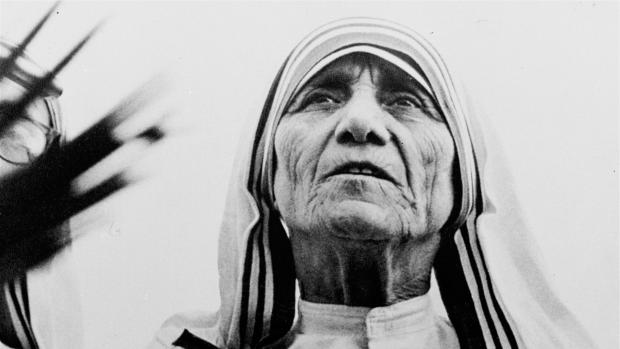As Mother Teresa is made a saint, her charity remains under scrutiny
ROME -- This Sunday, Pope Francis will canonize Mother Teresa as a saint, one of the highest honors in the Roman Catholic Church. Tens of thousands of people are expected to fill St. Peter’s Square at the Vatican for the ceremony to a woman who lived her life dedicated to the poorest of the poor.
The humanitarian and Noble Peace Prize winner will be known as Saint Teresa of Calcutta, reports CBS News correspondent Seth Doane.
A slight woman who stood less than five feet tall, Mother Teresa built a towering legacy. But author Susan Conroy said in life, she didn’t seem preoccupied by it.
“It was if she didn’t -- she wasn’t aware of her own greatness. I felt like tapping her on the shoulder and saying, ‘Don’t you realize how significant you are?’” Conroy said.
Conroy volunteered at Mother Teresa’s Missionaries of Charity, which offered end-of-life care to the poorest in Kolkata, India.
“The Home for the Dying, in particular, was a place where those of us who had health and strength served those who, at that moment, were weak and helpless,” Conroy said.
Mother Teresa died in 1997. She’d been born Agnes Bojaxhiu, the daughter of Albanian grocers. In 1948, she started her missionary work, which drew attention to India’s slums.
“We all came from different countries around the world with one simple purpose -- of alleviating some of the misery,” Conroy said.
But another volunteer, Hemley Gonzalez, said the charity sometimes added to the misery. Gonzalez now runs his own aid group in Kolkata but spent two months in 2008 working with Mother Teresa’s organization.
“I saw nuns washing needles with tap water and reusing them on patients, I saw facilities without doctors or nurses on staff. I saw volunteers like myself without any medical training being put in situations that were very difficult,” Gonzalez said.
Today, Gonzalez pushes for better care and greater financial transparency at Mother Teresa’s charity.
“They may be small pockets, but there is fierce criticism of Mother Teresa. Did that complicate the process for you?” Doane asked Father Brian Kolodiejchuk, who was in charge of promoting Mother Teresa’s sainthood. He also wrote the introduction to Mother Teresa’s book, “A Call to Mercy: Hearts to Love, Hands to Serve.”
“We or I weren’t afraid of those criticisms … we have obligation to look at them, and so we answered them as well,” he said.
Promoting her sainthood also included vetting the required, so-called miracle.
In this case, it was a Brazilian man’s inexplicable recovery from a serious viral brain infection after his wife prayed to Mother Teresa.
“Doctors are only asked their medical opinion. We don’t ask them, ‘Do you think it’s a miracle?’” Kolodiejchuk said. “You say, ‘Here’s the information… Can you explain this medically?’”
Kolodiejchuk said this was a 17-year process.
The Catholic Church says there must be two miracles to make a saint: the first leads to “beatification.” Mother Teresa was said to have cured a tumor-stricken Kolkata woman. Then the second miracle must come after beatification and leads to sainthood.
